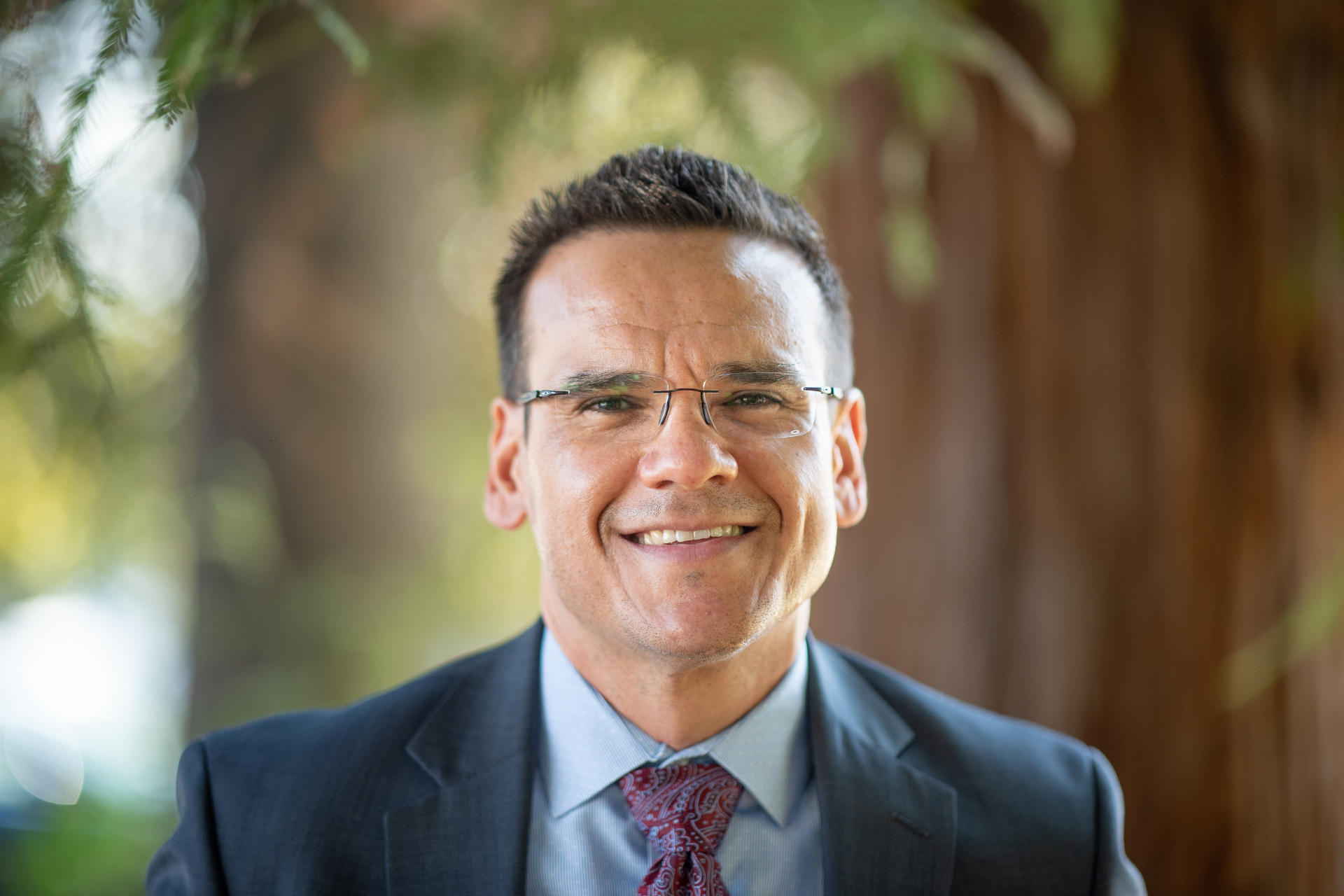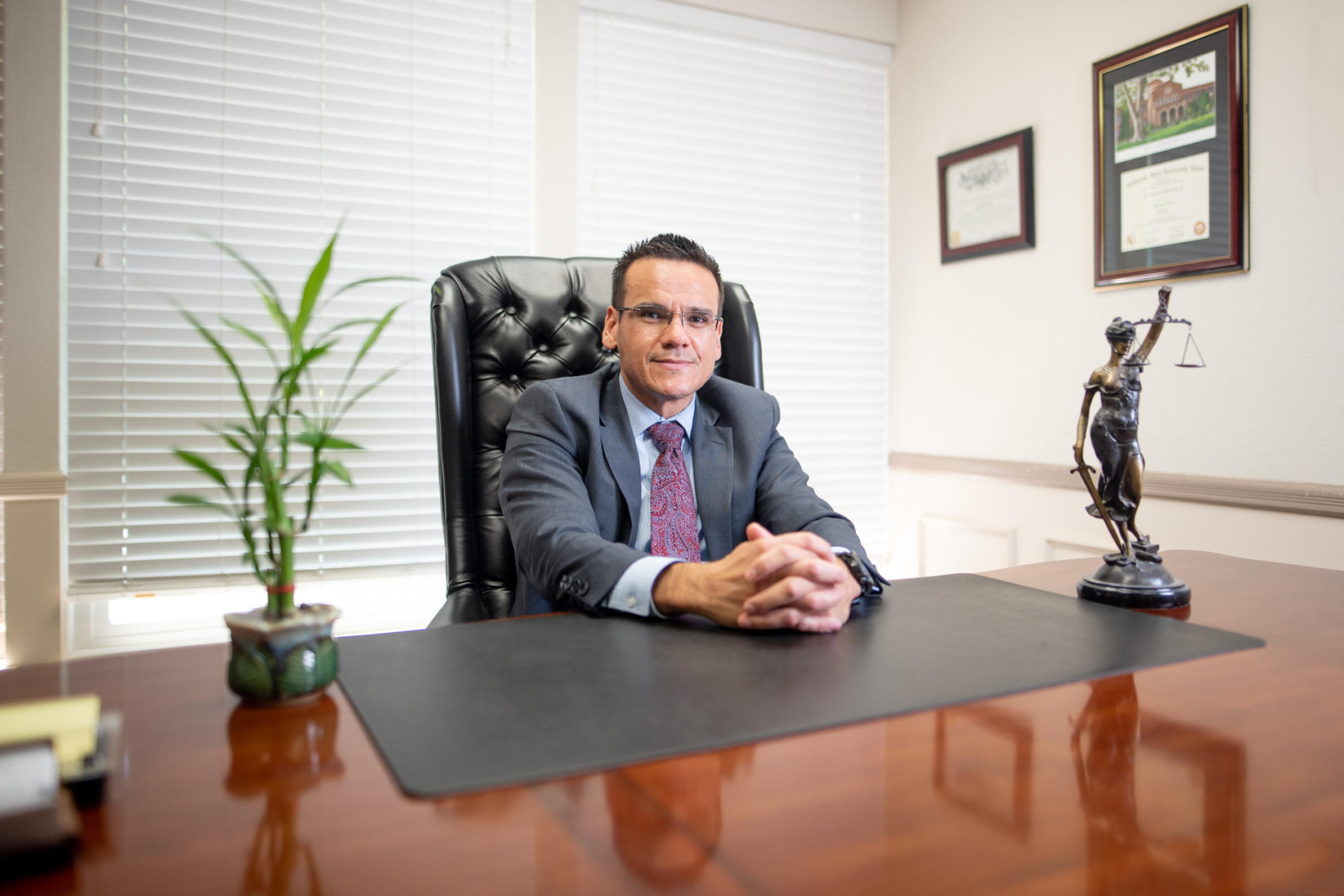Immigration Lawyer Finds Greatest Reward in Helping Others

Arturo Benavidez (2002) has dedicated his practice to helping people and small businesses in Northern California since 2006. He focuses his practice to Bankruptcy Law, Immigration Law and Personal Injury Law. He is a California native and son of immigrants. It is for this reason, that Mr. Benavidez works hard and dedicates his practice to helping people with their legal problems. He graduated with highest honors and was accepted to the Sandra Day OÕConner College of Law at Arizona State University. During his time at ASU Law, he was awarded a prestigious fellowship to work with the Florence Immigrants and Refugee Rights Project. Upon graduation in 2005 he moved back to Northern California where he currently runs his law practice in Sacramento. He is photographed on Monday, October 5, 2020 in Sacramento, Calif. (Jessica Bartlett/University Photographer/CSU, Chico)
This is one of four profiles marking the 50th anniversary of the Community Legal Information Clinic. As each alumni lawyer can attest, the program fosters a love of law that often leads to thriving careers. All of the profiles can be accessed in our 50-year tribute.
Arturo Benavidez scanned rows of tables—all covered with papers, pamphlets, and pens—as he considered which four-year university to transfer to from Palomar Junior College. When he reached Chico State’s table, the mention of CLIC intrigued him.
“I found out there was a possibility that I could represent real people before administrative law judges or present an argument, present evidence, and then basically close out a whole case on my own,” he recalled. “I said, ‘Oh yeah, this is where I’m going.’”
Today, the bilingual Benavidez (Political Science, ’02) focuses on bankruptcy, immigration, and personal injury law at his private practice in Sacramento, where he carries a caseload of more than 150 current and open files. Most involve family immigration petitions, naturalization applications, and other immigration and family-related work.
Benavidez chose to open his own private practice after working for a few attorneys and believing he could do better. His clients include those seeking to obtain a U visa—a nonimmigrant status set aside for victims of certain crimes—or those in need of relief with the Immigration and Nationality Act. While his work can be rewarding, it is fraught with challenges—particularly cases involving immigration law under the Trump administration.
“Due to various executive orders, we’ve had to adapt and get creative on how we approach any given case—it feels like the goal posts are constantly being moved,” he said. “If the goal is to limit the legal migration of people from different parts of the world, then this administration has succeeded.”
In addition to growing his desire to help those in need, CLIC built Benavidez’s foundation for law school and his future career by providing unique opportunities he otherwise would not have had. All the real-world experience he was promised as a prospective student had come true.

As he began studying at the prestigious Sandra Day O’Connor College of Law at Arizona State University, sitting shoulder-to-shoulder with bright and promising law students, Benavidez enjoyed a quiet confidence knowing he had more experience than most of his cohort.
“Don’t get me wrong, you’re still scared your first of year law school, there’s just constant fear that you’ll get called on by your professor,” he said. “But I was definitely able to raise my chin up a little bit and say, ‘I’m supposed to be here.’”
When it came to prepping for the courtroom, Benavidez easily cites influential Chico State faculty. In her “Legal Research and Writing” class, Teddy DeLorenzo instilled in him how vital writing is in the area of law and taught how to write proficiently and efficiently. Likewise, Benavidez appreciated Dane Cameron’s no-nonsense approach—adding that while preparing him to become more mentally tough, it also taught him to be more accountable.
“No cutting corners and no shortcuts,” Benavidez said. “He would always reference an ‘internal antenna,’ meaning that if something did not feel right, then it wasn’t. When preparing a file for a trial, a lawyer needs to tie up all loose ends.”
This dedication to excellence could one day lead Benavidez to heights beyond his private practice—perhaps aspiring to a judicial nomination or a seat on the bench of a county court. But for now, his focus is on his clients, particularly those navigating complex immigration code.
“You can imagine how someone feels after defending their physical removal from the US and winning,” he said. “These people live here for 20-plus years, have children in the US, and own property. A deportation order literally destroys lives—winning those cases gives me a sense of meaning.”


